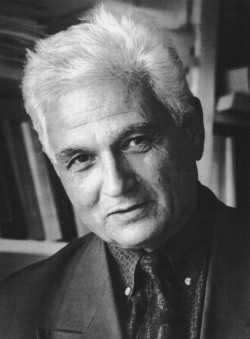Learn more about productivity with this collection
Creating a productive schedule
Avoiding procrastination
Prioritizing tasks effectively
Deconstruction
In 1967, Jacques Derrida introduced a new method to philosophy, which he called deconstruction. Put simply, this is the idea that if something is constructed it can be de-constructed.
That applies to objects in the world, such as chairs, cars and houses, but it also applies to the concepts we use, such as truth, justice and God. These ‘things’, which we tend to assume are natural, are in fact culturally constructed.
Importantly, deconstruction is not destruction. The concept or object is still there at the end.
63
614 reads
Steps to Deconstruct the World(Part 1)
- Get comfortable- you’re planning to overthrow every preconceived idea. Start by closing the door.
- Find something to deconstruct. Anything text can be deconstructed: poems, shopping list, podcast, this essay.
- Get deconstructing. Think about why these texts are regarded this way, why is this the common belief. How ‘true’ is this assessment? Whose interest might it suit? For Derrida, there is no true assessment of a text. And the idea that one assessment is dominant can tell us more about the conditions around the text than the text itself.
52
157 reads
Steps to Deconstruct the World(Part 2)
- Look for contradictions. Look where the spirit of the text is actually different, or opposed to, what’s actually going on. Hollywood movies are great for this.
- Read against the grain. Take a text, find what it seems to advocate, and look in the opposite direction. This doesn’t eliminate the text or the thinking, but it problematises them, it finds the limits. This reading against the grain can also be more subtle than just looking for the opposite. For example, you could ask, "what role does race play in the Marvel movies?", or "what are the economics of the Bible?"
52
123 reads
Steps To Deconstruct the World(Part 3)
- Don’t listen to what the author says. Finally, thinking like Derrida means trusting one’s own analysis of a text – even, or perhaps especially, if it contradicts the authors’ idea of what they’re doing. For Derrida, the author’s interpretation of her or his text is no more valid than the reader’s.
52
102 reads
Criticism of Derridean Thinking
Some critics have accused Derridean thinking of allowing for any interpretation or, worse still, of saying any interpretation is equally valid. The first is perhaps true, the second is not. Derrida was always clear that there were more effective and less effective ways of reading a text. But ultimately, any philosophical idea pushed to its extreme allows for nonsense.
Derrida called for a very close reading of the text at hand and, as with anything, the closer you look at something, the more fissures you see.
49
85 reads
Why it Matters?
Derridean thinking has influenced various works in multiple domains like literature, film and music. Derrida’s work spawned a whole genre in music called ‘hauntology’ which is a philosophical investigation of what there isn't.
While all these works openly deconstruct themselves, for Derrida, all works do this. No work can be pure – and present – in itself. Deconstruction is always happening in any work of art, and by looking very closely we can see not only how it’s happening, but also how the creator has pretended that it isn’t.
51
90 reads
52
132 reads
CURATED BY
Related collections
More like this
6 ideas
9 ideas
Read & Learn
20x Faster
without
deepstash
with
deepstash
with
deepstash
Access to 200,000+ ideas
—
Access to the mobile app
—
Unlimited idea saving & library
—
—
Unlimited history
—
—
Unlimited listening to ideas
—
—
Downloading & offline access
—
—
Personalized recommendations
—
—
Supercharge your mind with one idea per day
Enter your email and spend 1 minute every day to learn something new.
I agree to receive email updates

